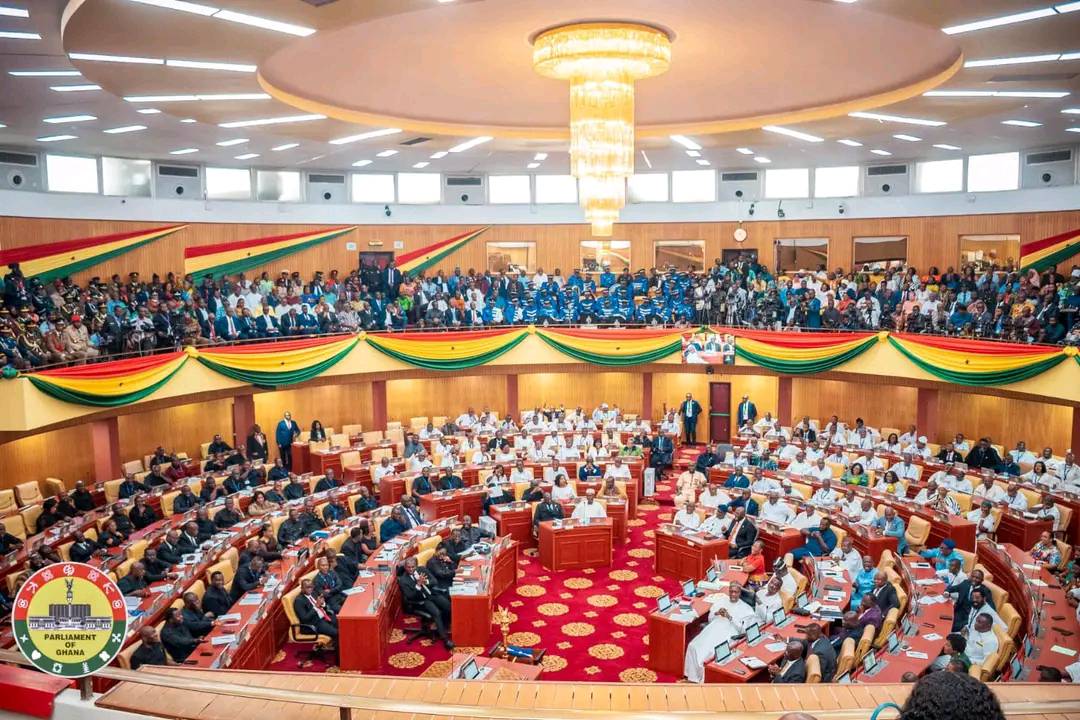
Parliament has approved the Growth and Sustainability Levy (Amendment) Bill, 2025, introducing significant changes to the fiscal regime governing Ghana’s extractive industries. The new law raises the levy on gold mining companies from 1% to 3% and extends similar increments to other mining firms as well as upstream oil and gas companies.
The bill was passed on Wednesday, March 26, 2025, amidst a mix of praise for its potential to boost national revenue and criticism over its abrupt implementation.
Government’s Justification for the Levy Hike
The Minister of Finance, Dr. Cassiel Ato Forson, first announced the proposed amendment during the presentation of the 2025 Budget Statement on March 11, 2025. Dr. Forson argued that Ghana has not fully capitalized on its natural resource wealth, even as global gold prices have surged.
“Natural resource rent accounts for about 14% of GDP, yet revenue from the extractive sector contributes only 1.5% of GDP. This gap highlights the need for a more robust approach to harnessing the wealth of our natural resources,” Dr. Forson stated.
He emphasized that the increased levy would enable the country to channel resource revenues into critical infrastructure and human capital development. He also proposed extending the levy’s sunset clause to 2028, ensuring Ghana reaps sustained benefits from its natural resources over the coming years.
Industry Concerns Over Lack of Consultation
Despite the government’s rationale, industry stakeholders have expressed strong opposition to the abrupt policy shift. Sulemana Koney, CEO of the Ghana Chamber of Mines, criticized the lack of consultation, describing the government’s approach as counterproductive to fostering investor confidence.
“What concerns me most is the lack of dialogue. Companies have been actively seeking investors to expand operations in response to high gold prices. Yet, without warning, the government introduces this drastic policy. We were informed only a day before the announcement, with no clear justification,” Mr. Koney lamented.
He further explained that the Chamber was led to believe the levy would see only a marginal increase. The unexpected jump to 3%, he said, risks discouraging both existing and potential investments in the sector.
“We recognize the economic challenges, but is it fair to place a disproportionate burden on businesses already contributing through multiple taxes and levies?” Mr. Koney asked.
Broader Economic and Policy Implications
Former Deputy Minister of Finance Mona Quartey has also cautioned against the implications of the levy hike. Speaking to reporters, she described the move as “shortsighted” and warned of its potential to stifle growth in the extractive sector.
“There is no doubt that we need to boost revenue, but this approach may hurt our ability to attract and retain investors in a highly competitive global market,” she said.
A Balancing Act
As Ghana grapples with economic challenges, the passage of the Growth and Sustainability Levy (Amendment) Bill, 2025, underscores the government’s intent to secure greater value from its natural resource wealth. However, the ensuing tension between revenue generation and maintaining investor confidence signals the need for more collaborative policymaking to balance national interests with industry sustainability.
Story by: Mercy Addai Turkson #ahotoronline.com




